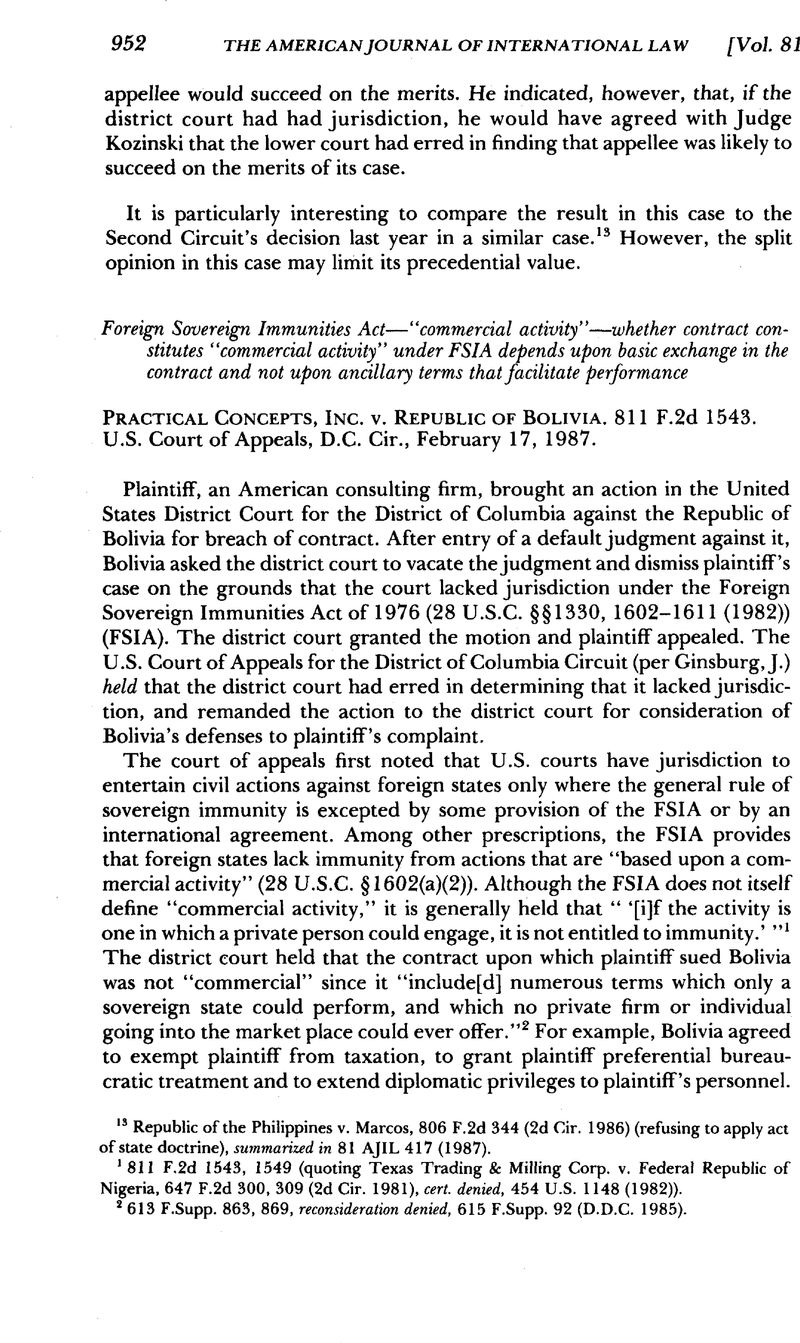No CrossRef data available.
Article contents
Practical Concepts, Inc. v. Republic of Bolivia
Published online by Cambridge University Press: 27 February 2017
Abstract

Keywords
- Type
- Judicial Decisions
- Information
- Copyright
- Copyright © American Society of International Law 1987
References
1 811 F.2d 1543, 1549 (quoting Texas Trading & Milling Corp. v. Federal Republic of Nigeria, 647 F.2d 300, 309 (2d Cir. 1981), cert, denied, 454 U.S. 1148 (1982)).
2 613 F.Supp. 863, 869, reconsideration denied, 615 F.Supp. 92 (D.D.C. 1985).
3 811 F.2d at 1548–50 (citing Hearings on H.R. 11315 Before the Subcomm. on Administrative Law and Governmental Relations of the House Coram, on the Judiciary, 94th Cong., 2d Sess. 24, 30 (1976)).
4 The court noted that some of the performance-facilitating terms of the contract were required as conditions of a grant to Bolivia from the U.S. Agency for International Development (AID), which financed Bolivia’s performance. Id. at 1550–51. The court stated that the approach of the district court “would yield immunity for foreign states whenever AID conditioned its financial support on performance-facilitating features of the kind encountered here.” Id. at 1550. The court held that such a result would be contrary to the congressional intent that the AID affiliation should not affect the commercial or private nature of an activity. Id. (relying on H. Rep. No. 1487, 94th Cong., 2d Sess. 16 (1976), reprinted in 1976 U.S. Code Cong. & Admin. News 6604, 6615).
5 Id. at 1551–52. The court may have been influenced by the apparent merit of Bolivia’s claim that plaintiff had failed to comply with a contract clause requiring arbitration of disputes between the parties, since it expressly directed the district court’s attention to this defense. Id. at 1545.




